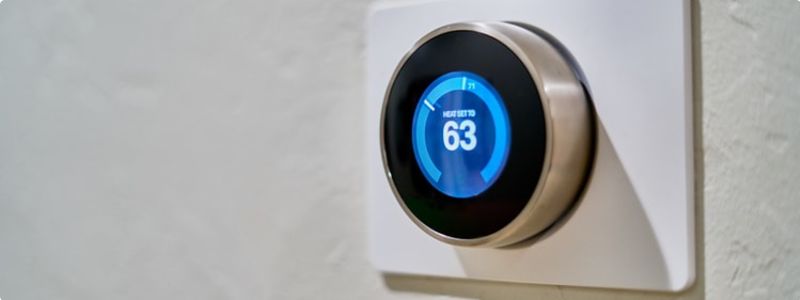Ductable Air Conditioning: How It Works And Why It Might Be The Right Choice For You.

Simply put, a duct type air conditioner is the channel that carries cool air throughout the desired space while also removing warm or stale air.
This system is not only beneficial in both the summer and winter months in Chicago, it also provides ventilation for better indoor air quality all year long.
Ducted air conditioning systems are popular and very much in demand as temperature is easily regulated throughout each room individually.
Since the installation process is a bit complicated, it is highly suggested to hire a in Chicago professional.
You may be asking what sets ductable air conditioners apart from other types of air conditioners.
Learn more as we discuss how ductable air conditioners work, the benefits, and whether or not choosing ductable air conditioning in Chicago is right for you.
We'll put you in touch with Top-Rated home improvement Pros in just a few steps.
Thousands of contractors are waiting to work for you.
Let’s Explore The Pros And Cons Of Ducted Air Conditioning!

What is ducted air conditioning?
Ducted air conditioning distributes cold or hot air through a series of ducts and vents. The central unit is located in either the attic, basement, garage, or under the floor. One of the benefits of ducted air conditioning is that it’s unobtrusive and discrete. Diffusers, vents and/or grids are visible while the duct work is hidden. This system is definitely suited for the design conscious.
Ducted air conditioning is also known as central air conditioning. There are two types of ducted central air conditioning: Split and Packaged
- Split central air conditioning is the most common type of central air and the most convenient if ductwork is already installed. As the name suggests, split AC is composed of a unit split in two. The condenser and compressor are placed outside while a separate evaporator remains indoors. The reason for a split unit is due to size. Typically, a split air conditioner is much larger than a packaged air conditioner. Split AC is also much more efficient.
- Packaged central air conditioning is composed of a single unit, which includes the condenser, compressor and evaporator. This unit is placed outdoors, either on the roof or alongside the wall of the property. Prior to installing a packaged central air conditioning unit, it’s important to evaluate the location in which you plan to station the system. For example, since it is a heavy piece of equipment, the roof must be able to handle the weight.
As you can see, ducted central air conditioning has several advantages. Specifically, ducted systems are highly efficient, provide enhanced air circulation, and have the ability to remove humidity at a greater rate than ductless systems. Even more, it is much less expensive to heat one’s home with a ducted system than with an electric heating system.
Ducted air conditioning systems are meant to cool each space individually, rather than move air between spaces. Some ducted air conditioning systems give you control over temperature settings, allowing you to turn zones off when they are not being used. This is not only convenient while living in Chicago, but it also saves electricity.
While all HVAC systems make some noise, a ducted air conditioner is generally very quiet compared to other systems. Ducted air conditioners quietly move air, while some other systems, like window units for example, tend to be noisier. Naturally, dust and buildup of dirt can affect any system’s operating ability, making it difficult to successfully move air. This can ultimately generate some noise.
Not only does a ducted air conditioning system allow the user to control temperature settings, it also gives you the ability to control operating times. So not only does it provide maximum comfort, it also saves energy. Ducted air conditioning also has a filtration system, which acts as a humidifier and purifies the air, which is favorable in Chicago.
New home construction and newly renovated homes provide the perfect opportunity to install ducted air conditioning since all required space is planned in advance. Installing ducted air conditioning in an older home or existing space may require lowering ceilings or building out walls. Sometimes the attic or basement can handle the ductwork.
It is important to consult a HVAC specialist who can suggest a properly sized system and who will consider your home’s electrical system. It is suggested to contact a professional to install your new system.
Unfortunately, not all homes have a convenient space to install a duct system. As discussed, ductwork is usually concealed within walls and ceilings. This means that you may need to structurally modify walls, ceilings, and/or flooring to accommodate ductwork.
There are different factors that can determine the cost of installing new ductwork in your home. For example, in this case, the size of your home actually matters. Larger homes require more ducts and more vents than smaller homes. Installation in homes without existing ductwork is a more involved process, which can be costly. Another factor is the material of the ducts, like galvanized steel, duct board, or insulated fiberglass. Each material has a different cost. Regardless of the size of your home or the materials used, ductwork installation is a labor-intensive and time consuming process, which should be done by a professional. This can be costly.
Is Ducted Air Conditioning Right For You? Here Are Some Benefits To Choosing A Ducted System.

A ducted air conditioning system has several advantages. For example, it can be reversible. This means that one system can both heat and cool the home.
Reversible ducted air conditioning can be used year round. As the weather changes throughout the year, this system allows you to cool or heat your home as needed. Keeping your home nice and cool in the summertime has become essential in Chicago.
Another advantage to (reversible) ducted air conditioning is energy savings! Being able to control the temperature in your home throughout the year can definitely save you on electricity bills.
In addition to regulating the temperature inside your home, a ducted air conditioning system acts as an air purifier and a dehumidifier. Dehumidifying the air helps remove excess moisture and humidity. High levels of humidity inside the home can cause mold, mildew, even dust mites - all which can trigger health problems.
Another advantage to a ducted system is how discrete and unobtrusive it is. Ducts are hidden in the ceiling or attic so only the air vents are visible. The air then moves quietly through the vents and cools the room.
Other systems, such as a radiator, can be an eye sore and not fit in well with the design of the home. For those with an eye for design, ducted systems are aesthetically pleasing and do not take up space.
One of the biggest complaints of other air conditioning systems is how loud they are when the air conditioning kicks in. Ducted air conditioning systems, on the other hand, are generally quiet. Ductwork is installed in a false ceiling or attic, while the outdoor unit is installed on an exterior wall. Air moves quietly through the vents. If the system should develop technical issues or shows signs of breaking down, you may hear some noise.
While the installation process of ducted systems can be costly, a ducted system can save you money once it is up and running. For example, you can control air movement throughout the home as you have the ability to turn zones on and off when particular rooms are unoccupied. This ultimately saves energy and reduces electricity bills.




